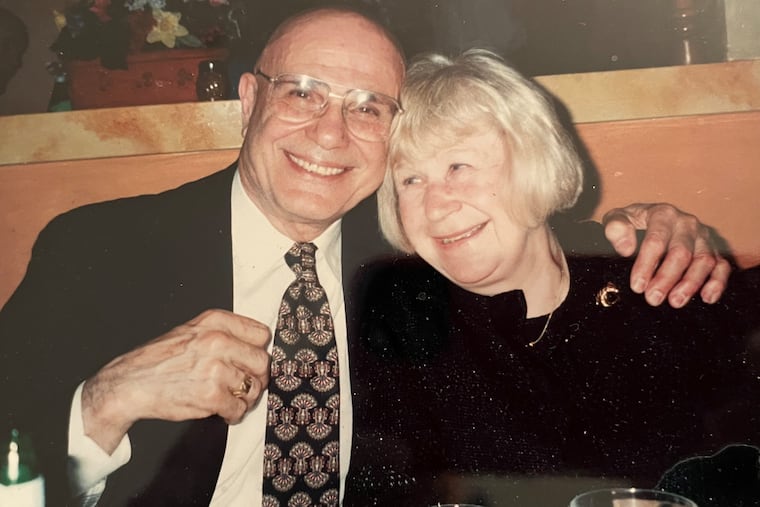Stanley Segall, professor emeritus at Drexel and food science expert, dies at 91
He was an authority on coffee, and his doctoral thesis at the Massachusetts Institute of Technology is recognized as a seminal work in the coffee industry.

Stanley Segall, 91, of Strafford, professor emeritus and former chairman of Drexel University’s department of nutrition and food sciences, scientist and consultant to coffee and food companies, fellow at the Chicago-based Institute of Food Technologists, and author, died Friday, March 4, of complications after a fall at Adventist HealthCare Shady Grove Medical Center in Rockville, Md.
Dr. Segall was an authority on how chemistry and biochemistry affect food production and nutrition. He taught about bioscience and biotechnology at Drexel for 37 years, from 1968 to 2005, was a renowned expert on coffee, and advised businesses, government agencies, and other organizations about food-related issues.
He wrote chapters about food and nutrition for the 1971 book Environmental Health, the 2000 book Caffeinated Beverages: Health Benefits, Physiological Effects, and Chemistry, and the 2007 book Developing New Food Products for a Changing Marketplace, and his extensive research was cited in, among other literature, the 2003 book Fat Land: How Americans Became the Fattest People in the World.
He was quoted often about coffee, sweets, and other food topics in The Inquirer and Daily News and other publications such as the Washington Post, Tampa Bay Times, Chicago Tribune, USA Today, Food Technology magazine, Fitness magazine, Today’s Dietitian magazine, and the Journal of Food Science.
Dr. Segall was practical and explicit in sharing his research, and parents, children, athletes, and others as well as fellow scientists could understand his opinions and advice and put them into practice.
“Some people argue that giving children sweets with milk encourages bad eating habits, that you shouldn’t have to induce children to do something that is good for them,” he told the Daily News in 1997. “And I don’t argue with that. But if the sweetened milk replaces soda, it’s a real plus.”
Dr. Segall was a featured speaker at many conferences and was singled out by historians for his “coffee insights” while he worked toward his doctorate at the Massachusetts Institute of Technology.
Born May 12, 1930, in Baltimore during the Great Depression, Dr. Segall went to high school in Boston and earned a bachelor’s degree in chemistry from Northeastern University in 1954 and a doctorate in food science and technology from MIT in 1957.
He worked as a lead scientist and engineer for the Philadelphia-based Rudd-Melikian coffee company in the 1960s and, among other things, helped refine its groundbreaking single-cup coffee vending machine. But an affection for his own days at MIT and ability to make complex issues comprehensible to others led him to take a professor’s job at Drexel in 1968.
“He liked being around young and developing people,” said his son Wynn. His son Hal said, “He recognized some of himself in his students.”
Dr. Segall met Helen Shwom in a Boston restaurant where she worked as a waitress, and they married in 1954. They lived in Rosemont and Strafford, had sons Hal and Wynn, and, after she became a professor of Russian language and literature at Dickinson College in Carlisle, Pa., nearly perfected the art of the long-distance marriage. She died in 2018.
Dr. Segall, inspired by his wife, who survived the Holocaust, studied Russian at Bryn Mawr College in a class that was taught by his wife. Interesting and engaging, they often hosted students at the dinner table, and he remained a mentor to many of them and his own family for the rest of his life.
“He had an innate curiosity,” said son Wynn.
The couple traveled to Russia and elsewhere, shared a love of classical music, opera, and art, and were longtime regulars at the Philadelphia Orchestra. He liked physical work; was handy with carpentry, plumbing, and electrical work around the house; and planted trees and gardens.
He encouraged his wife’s ambitions and did household chores, made meals, and drove his sons to school when she was working in Carlisle. “He was about integrity, intellectual pursuits, and most of all his family,” said son Hal.
In addition to his sons, Dr. Segall is survived by four grandchildren and other relatives.
Services were held March 10.
Donations in his name may be made to the United States Holocaust Memorial Museum, 100 Raoul Wallenberg Place SW, Washington, D.C. 20024.